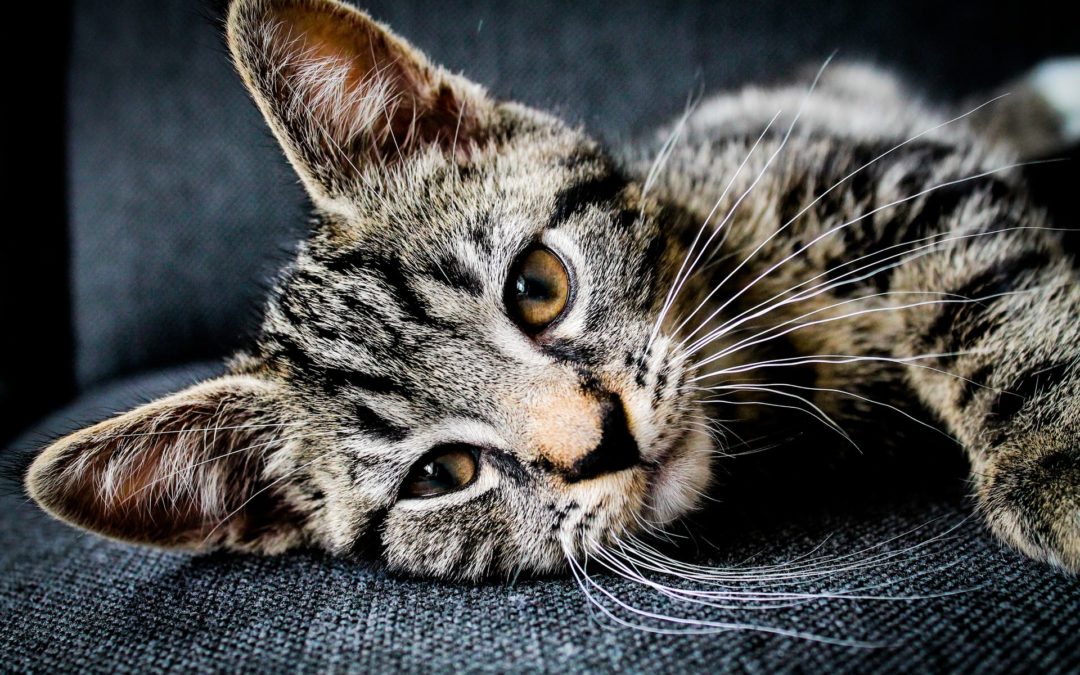Here at Anasazi Animal Clinic, we always hope that when a client comes in with a new kitty, their first wellness visit is easy and the cat is healthy. Sometimes, however, a first veterinary visit can reveal medical problems and diseases. If your new kitty gets a diagnosis of FIV, don’t be alarmed. While no one wants to hear their new pet has a medical condition, the good news is that an FIV-positive cat can still live a long, healthy life.
What Is FIV?
FIV stands for Feline Immunodeficiency Virus. It is a disease that affects cats around the world—here in North America, an estimated 2.5-5% of the entire feline population has this virus. FIV in cats normally spreads through a bite or scratch from an infected cat. It cannot be spread through grooming or sharing a litter box, and a cat cannot transmit FIV to a human even if they bite them.
The feline immunodeficiency virus attacks a cat’s immune system, which leaves the cat vulnerable to secondary infections. Unless a veterinarian conducts a blood test to test for FIV, you might not know that your cat has FIV. Sometimes FIV will go undetected in a cat for many years until they start to show secondary infection symptoms.
FIV-positive cat symptoms include:
- Recurring fevers
- Fatigue
- Loss of appetite
- Consistent diarrhea
- Inflamed mouth and gums
- Chronic infections in the bladder, eyes, skin, or upper respiratory tract
- Weight loss
- Seizures
- Behavioral changes
FIV affects a cat in three different stages:
- Acute Phase—This stage lasts about three months, and takes place right after the cat is initially infected with FIV.
- Latent Infection—This period occurs when a cat is FIV positive but shows no symptoms; it can last for several years.
- Chronic/Terminal Phase—At this stage, the cat’s immune system has been weakened and they are now susceptible to secondary infections. The cat will begin showing symptoms of FIV and may develop other diseases.
Can FIV in Cats Be Cured?
Unfortunately, there is no cure for FIV in cats. However, FIV-positive cats can live very long, very normal lives. Since FIV is only transmitted through bites, FIV-positive cats can live with the other uninfected cats in your home without a problem.
When we diagnose a cat with FIV, we always recommend making sure that cat stays indoors. This helps to lower their risk of picking up a secondary infection and also ensures they do not transmit the virus to other cats in the neighborhood. We also recommend that cats who test positive for FIV see a veterinarian every six months, in case their health changes.
Empathetic Cat Care in Gilbert, Arizona
No cat lover wants to hear that their pet has an incurable disease. At Anasazi Animal Clinic, we want to make sure you leave our clinic with a positive outlook and all the information you need to keep your FIV-positive cat healthy and happy for many years. If you notice any symptoms of FIV, or if it’s been a while since your feline friend has been in for an exam, contact us today.
Photo by Erik-Jan Leusink on Unsplash

